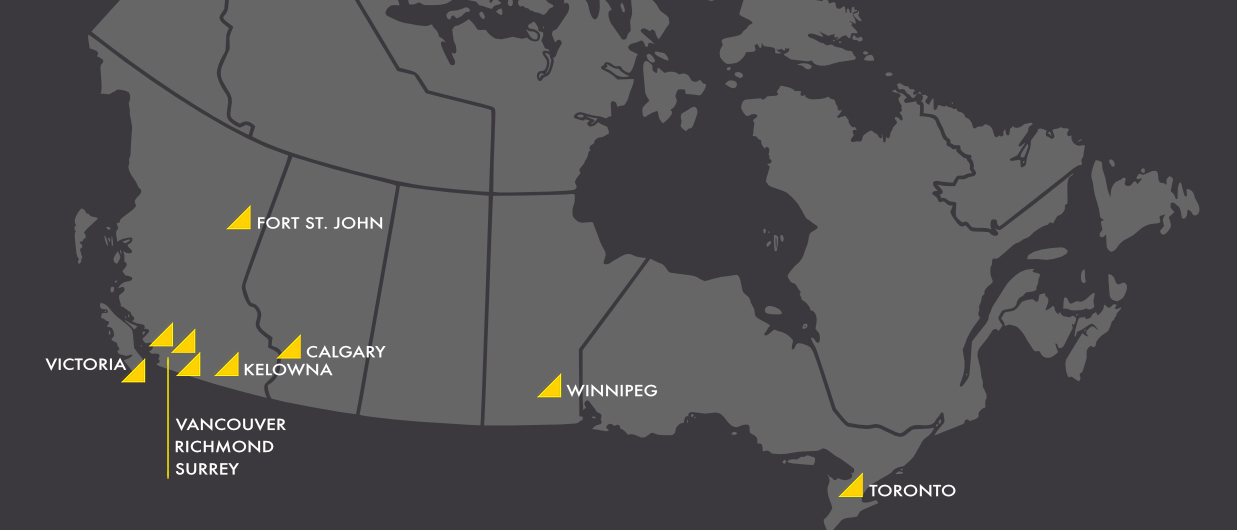
MacLean Law’s Vancouver Toronto Excluded Property Lawyers act across Canada with offices in Vancouver and across BC, Calgary, and in the Toronto Financial District. In today’s blog, our top-rated Vancouver Toronto Excluded Property Lawyers explore high net worth family Vancouver excluded property and Toronto excluded property differences. With wealthy Canadians being more mobile than ever issues arise as to where a separated spouse’s excluded property is divided. Today’s blog by senior Vancouver and Toronto family lawyer Robert McQueen helps spouses who move between Toronto and Vancouver understand key differences concerning how this property class is dealt with on separation.

Vancouver Toronto Excluded Property Lawyers
Have you inherited property, received a gift of cash, or an advance on an inheritance during the course of your marriage or marriage-like relationship? Is it excluded property if the relationship ends? What happens if the property or gift increase in value during the course of the relationship do you have to share all of the increase with your former spouse? Our Vancouver Toronto Excluded Property Lawyers get asked this question a lot. The answer to the last question depends on where you live. If you live in BC the answer is “maybe” and if you live in Ontario the answer is “yes” it is all yours to keep.
BC Family Law Property Rules 604 602 9000
The B.C. Family Law Act states:
84 (1) Subject to section 85 [excluded property], family property is all real property and personal property as follows:
(a) on the date the spouses separate,
(i) property that is owned by at least one spouse, or
(ii) a beneficial interest of at least one spouse in property;
(b) after separation,
(i)property acquired by at least one spouse if the property is derived from property referred to in paragraph (a) (i) or from a beneficial interest referred to in paragraph (a) (ii), or from the disposition of either, or
(ii)a beneficial interest acquired by at least one spouse in property if the beneficial interest is derived from property referred to in paragraph (a) (i) or from a beneficial interest referred to in paragraph (a) (ii), or from the disposition of either.
(2) Without limiting subsection (1), family property includes the following:
(g) the amount by which the value of excluded property has increased since the later of the date
(i) the relationship between the spouses began, or
(ii) the excluded property was acquired.
Ontario Family Property Rules 416 900 3428
The Ontario Family Law Act states:
Excluded property
(2) The value of the following property that a spouse owns on the valuation date does not form part of the spouse’s net family property:
- Property, other than a matrimonial home, that was acquired by gift or inheritance from a third person after the date of the marriage.
- Income from property referred to in paragraph 1, if the donor or testator has expressly stated that it is to be excluded from the spouse’s net family property.
- Damages or a right to damages for personal injuries, nervous shock, mental distress or loss of guidance, care and companionship, or the part of a settlement that represents those damages.
- Proceeds or a right to proceeds of a policy of life insurance, as defined under the Insurance Act, that are payable on the death of the life insured.
- Property, other than a matrimonial home, into which property referred to in paragraphs 1 to 4 can be traced.
- Property that the spouses have agreed by a domestic contract is not to be included in the spouse’s net family property.
- Unadjusted pensionable earnings under the Canada Pension Plan. R.S.O. 1990, c. F.3, s. 4 (2); 2004, c. 31, Sched. 38, s. 2 (1); 2009, c. 11, s. 22 (5).
Onus of proof re deductions and exclusions
(3) The onus of proving a deduction under the definition of “net family property” or an exclusion under subsection (2) is on the person claiming it. R.S.O. 1990, c. F.3, s. 4 (3).
Consider section 84(2)(g) of the BC Family Law Act if your inheritance has increased in value during the course of the relationship the increase in value under BC law is to be shared with your spouse. For example, if you inherited a piece of land that at the time of acquisition was worth $100,000.00 and at the end of the marriage, it is valued at $1,100,000.00 your spouse is entitled to a 50% share of the $1,000,000.00 increase in value.
But wait there is more to cloud the waters in B.C.
Excluded property
85 (1)The following is excluded from family property:
(a) property acquired by a spouse before the relationship between the spouses began;
(b) inheritances to a spouse;
(b.1) gifts to a spouse from a third party;
(c) a settlement or an award of damages to a spouse as compensation for injury or loss, unless the settlement or award represents compensation for
(i) loss to both spouses, or
(ii) lost income of a spouse;
(d) money paid or payable under an insurance policy, other than a policy respecting property, except any portion that represents compensation for
(i) loss to both spouses, or
(ii) lost income of a spouse;
(e) property referred to in any of paragraphs (a) to (d) that is held in trust for the benefit of a spouse;
(f) a spouse’s beneficial interest in property held in a discretionary trust
(i) to which the spouse did not contribute, and
(ii) that is settled by a person other than the spouse;
(g) property derived from property or the disposition of property referred to in any of paragraphs (a) to (f).
(2) A spouse claiming that property is excluded property is responsible for demonstrating that the property is excluded property.
According to section 85(g) of the BC Family Law Act, it is open to the party claiming the inheritance or gift is excluded property to also claim replacement property bought with proceeds of excluded property as excluded because the new property is property derived from the gift or inheritance but the gain is still family property.
Vancouver Toronto Excluded Property Lawyers
The BC Supreme Court in C.P. v. K.W.A. 2018 CarswellBC 573 stated that:
89 In order to make a determination under s. 85(1)(g), the court must consider whether presumptively family property was “derived” from an excluded asset during the relationship. In other words, the FLA allows the court to trace excluded property.
90 The case law under s. 85(1)(g) is in the early stages of development. In particular, the issues of what evidentiary record is necessary to prove that currently owned property is derived from the original excluded property, and what tracing methods the court should employ, is far from settled law.
91 In Shih v. Shih, 2017 BCCA 37 (B.C. C.A.), our Court of Appeal held that tracing does not require precision, but does require cogent evidence capable of establishing the derivation on a balance of probabilities, stating at paras. 41-44:
[41] The inherent challenge which confronts litigants under the FLA is that in many relationships of any significant length, documents will have been destroyed and memories dimmed. A legal standard that demands mathematical certainty or precision risks defeating legitimate claims.
[42] In my opinion, the proper test for establishing a claim to excluded property under s. 85 of the FLA is the same as in any civil case — proof on a balance of probabilities. The requirement of certainty and precision in my view improperly tips the standard closer to the criminal standard of proof beyond a reasonable doubt.
[43] I do not quarrel with the proposition that, in order for a party to establish excluded property, he or she must do so with clear and cogent evidence. If documentary evidence is not available, the party bearing the onus of proof will need to testify as to their recollection of the transactions in dispute. That evidence will be scrutinized for credibility.
In Ontario under section 4(2) of the Family Law Act, the starting value, and the increase in the value of the inherited or gifted property is excluded property outright.
The Ontario Court of Appeal in Oliva v. Oliva, 1988 Carswell 208, held that:
2 While we might have found that none of the properties was a gift but all were part of the business and partnership activities among the partners, we are not disposed to interfere with any of his findings of fact. It follows that the deductions made by the local judge with respect to the properties acquired before marriage based upon s. 4(1) will stand. Under that section, the net family property is determined after deducting the value of the property owned on the date of marriage and that is the procedure the local judge followed. With respect to the two properties found to be gifts after the marriage, the position is different. There, s. 4(2) provides that, with respect to property acquired by gift after marriage, “the value of the … property that a spouse owns on the valuation date does not form part of the spouse’s net family property”. It follows that the whole value including any appreciation therein after the date of the gift cannot be included. The local judge excluded only the actual value of the gift at the time it was made.
Takeaway- Be Careful On Choice of Law and Jurisdiction

In a nutshell, Ontario is more favorable to the party claiming the exclusion because both the starting value of it and any gain made on it remains exempt from the division on separation. In BC the starting value is protected but the gain is up for division whether equal or unequal. This is something to consider when there is a dispute over what Province has jurisdiction over your relationship. Cohabitation and marriage agreements should take this into account in the choice of law and jurisdiction clauses.
Reach out to our high net worth family lawyers today.
Let Maclean Law’s family lawyers help you navigate through this complicated process. Call us across Canada today toll free at 1 877 602 9900








